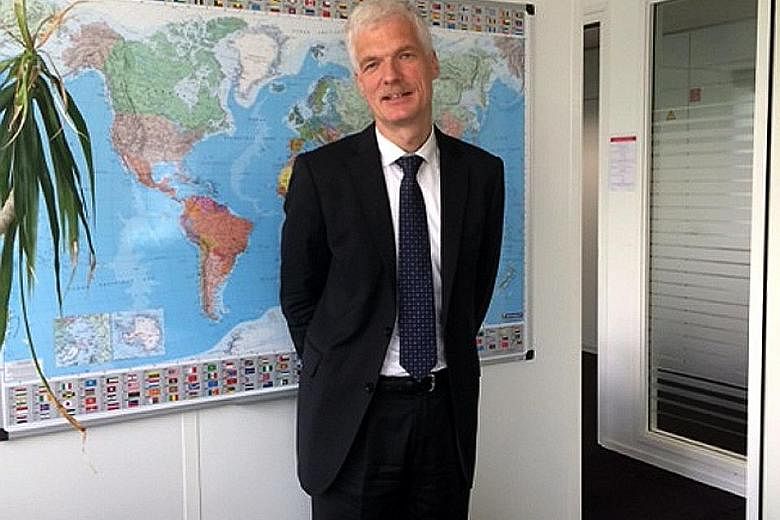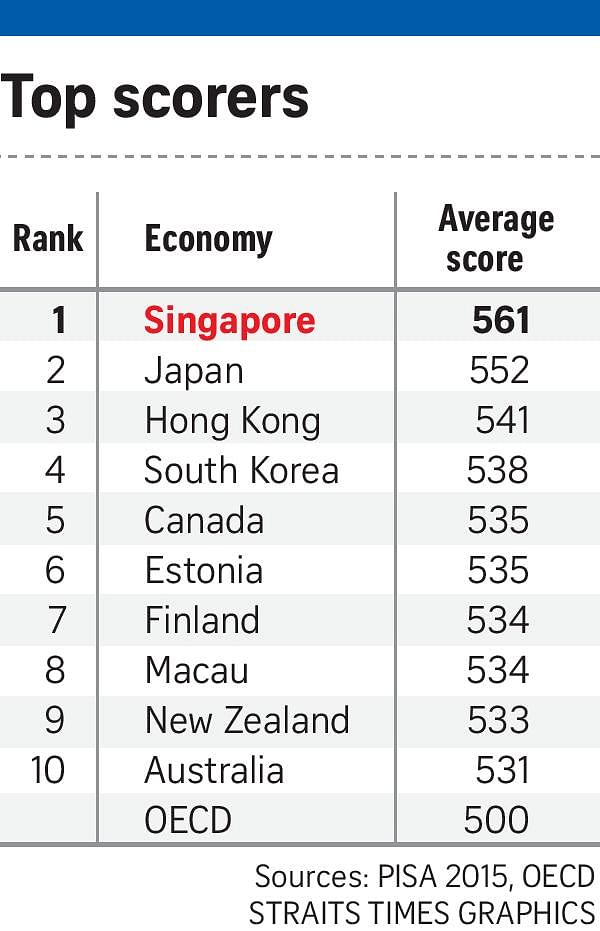Singapore students are world beaters not just in science, mathematics and reading, but also in the ability to solve problems in teams, according to new findings from the Organisation for Economic Cooperation and Development (OECD).
The Republic topped a global test of collaborative problem-solving skills under the OECD's Programme for International Student Assessment (Pisa) test conducted in 2015.
Singapore had the highest mean score of 561 points, followed by Japan with 552 points, Hong Kong with 541 points and South Korea with 538 points.
The Pisa Collaborative Problem Solving results, released yesterday, are the first test of such skills to help countries see where they stand in preparing students to live and work in an interconnected world.
Some 125,000 students across 52 economies around the world took part in the test, which measured students' ability to solve problems collaboratively, negotiate and come to agreement, for instance.
The Pisa test has traditionally assessed abilities in science, mathematics and reading - core subjects in which Singapore was ranked first in the latest 2015 exercise - but is including skills that are increasingly important in the new economy.
Singapore had the highest proportion of top performers - more than 20 per cent of students here achieved the highest level of proficiency (level 4) in collaborative problem-solving. This means they could carry out tasks needing high levels of collaboration, maintain an awareness of group dynamics and had the initiative to take action or make requests to overcome obstacles and resolve disagreements.
On average, only 8 per cent of students could perform at this level.
The results also showed that students here have positive attitudes towards collaboration. More than nine in 10 said they are good listeners, enjoy seeing their classmates be successful, take into account what others are interested in and like cooperating with their peers.
Dr Andreas Schleicher, OECD director for education and skills, said: "Singapore demonstrates that strong academic performance does not have to come at the expense of weaker social skills. In fact, Singapore scores even better in collaborative problem-solving than it does in science and mathematics."
Mr Sng Chern Wei, the Ministry of Education's deputy director-general of education (curriculum), said the results reaffirm schools' efforts to create group learning experiences through initiatives like project work and community projects.
"We need to ensure that such experiences are common for every student, and they are able to benefit fully from them," he said.
To assess collaborative problem-solving, students had to tackle a problem by collaborating with a partner, in this case, a software program. In a computer-administered assessment that simulates team members, the student interacts with conversational agents via messages to carry out tasks like planning a presentation or a field trip.
Besides gathering information and devising strategies, they had to consider what their team members knew, decide who takes which actions and maintain assigned roles.
MOE noted that the study design is a standardised way of measuring and comparing collaborative problem-solving skills, but real-life settings may be more complex.
Principals said teamwork is part and parcel of students' life.
At Beatty Secondary, Secondary 2 students work together on a project on local pioneers and have to do research and present their findings.
Said Beatty's principal, Mr Ling Khoon Chow: "The problems (in today's world) moving forward are quite unique. The answers do not come so readily, so these are important skills for students to pick up."



